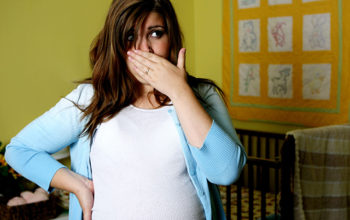There are a lot of emotional problems that a first-time mom may feel and experience during pregnancy and after delivery. New mothers experience numerous physiological and psychological changes after the birth of their child. The most common psychological problems in new mothers during the postpartum period are anxiety, depression, and insomnia. In addition to these, new mothers typically encounter physiological changes and struggles concerning weight gain, body image, sexuality, and other physical difficulties such as fatigue that may add on and exacerbate stress and leads to mothers being psychologically distressed.
Difficulties that Moms May Experience After a Normal Delivery
Although normal deliveries are perceived as safer than C-Sections, there are still risks and difficulties that a mother will go through or experience after birth. During a vaginal delivery, the skin and tissues around the vagina can stretch and tear while the fetus moves through the birth canal. If the stretching and tearing are severe, the woman may need stitches. This may also cause weakness or injury to the pelvic muscles that control their urine and bowel functions.
Studies have also shown that women who had normal deliveries are more likely to have problems with bowel or urinary incontinence than the women who had C-sections. They may also experience lingering pain in the perineum, the area between the vagina and the anus. They are also more prone to leak urine when they sneeze, laugh, or cough.
Difficulties that Moms May Experience After a C-section Delivery
Women who had C-sections typically stay longer in the hospital compared to those who had normal deliveries. C-section also increases the risk for more physical complaints after the delivery, such as pain or infection at the are of incision and longer-lasting soreness.
C-section also increases the risk of blood loss and a greater risk of infection since this procedure involves them undergoing surgery. Their bowel or bladder can also be injured during the operation and a blood clot may form.
Once a woman has undergone C-section, they are more likely to have C-section in their future deliveries. They are also at a greater risk of complications in their future pregnancies, such as uterine rupture and a placental abnormality. The risk of having placental problems increases with every C-section a woman undergoes.
Tips for First Time Moms in the First Three Months After Delivery
The first days, weeks, and months after delivery can be very terrifying. A newborn baby requires around-the-clock care and can be very overwhelming to first moms. From trying to soothe their cries to learning how to hold and bathe them, to deciding whether to breastfeed or bottle-feed, and so many more things that a mom should learn at the same time can cause so much stress. So, to help you in your journey to motherhood, here are some tips for first-time moms in their first three months after delivery.
- Recreate life in the womb
Since the baby has been in the uterus of the mother for several months, they are accustomed to several elements such as a confined space, constant touch, loud rhythmic sound, and a near-constant jiggling. After the delivery, the baby will be craving for these sensations and can become fussy without them.
So, it is important to become the womb outside the womb and give everything that your baby needs in the first 12 weeks. By the end of the three-month mark, your baby is more physically and cognitively developed, and by this time you now get the hang of their eating and sleeping routine.
- Take your time to heal
While doing everything you can to give all the needs of your baby, it is also important to remember not to overstrain yourself, as your body is still at its healing stage as well. You can do this by holding your baby by strapping her to you in a sling or using a carrier for the majority of the time. This strategy will you not to do too much and will give your body time to heal.
During the healing stage, your uterus will cause a bloody discharge called lochia. Night sweats are also common as the body sheds the excess pregnancy fluids. There will also be major healing if the birth has caused tearing or when C-section is performed.
There are also emotional distress and changes that occur in women after birth due to hormonal changes. Lack of sleep, stress and overfatigue can also be an additional factor for the unstable emotions that a mother will experience. So, make sure to take rest especially when the is sleeping as well.
- Get help after birth
Having support is essential when nursing your baby. You can ask for help from your spouse, in-laws, other family members, and friends every time you are tired or when you need alone time. You can also use this time by doing little exercises like walking or jogging around your house, or preparing your food and making sure you are eating healthy which is also essential for your body’s healing.Motherhood is a difficult journey but it is also one of the most fulfilling jobs. If you have more inquiries and questions about motherhood and taking care of your baby, you can visit an online doctor Toronto for online consultations and checkups.



